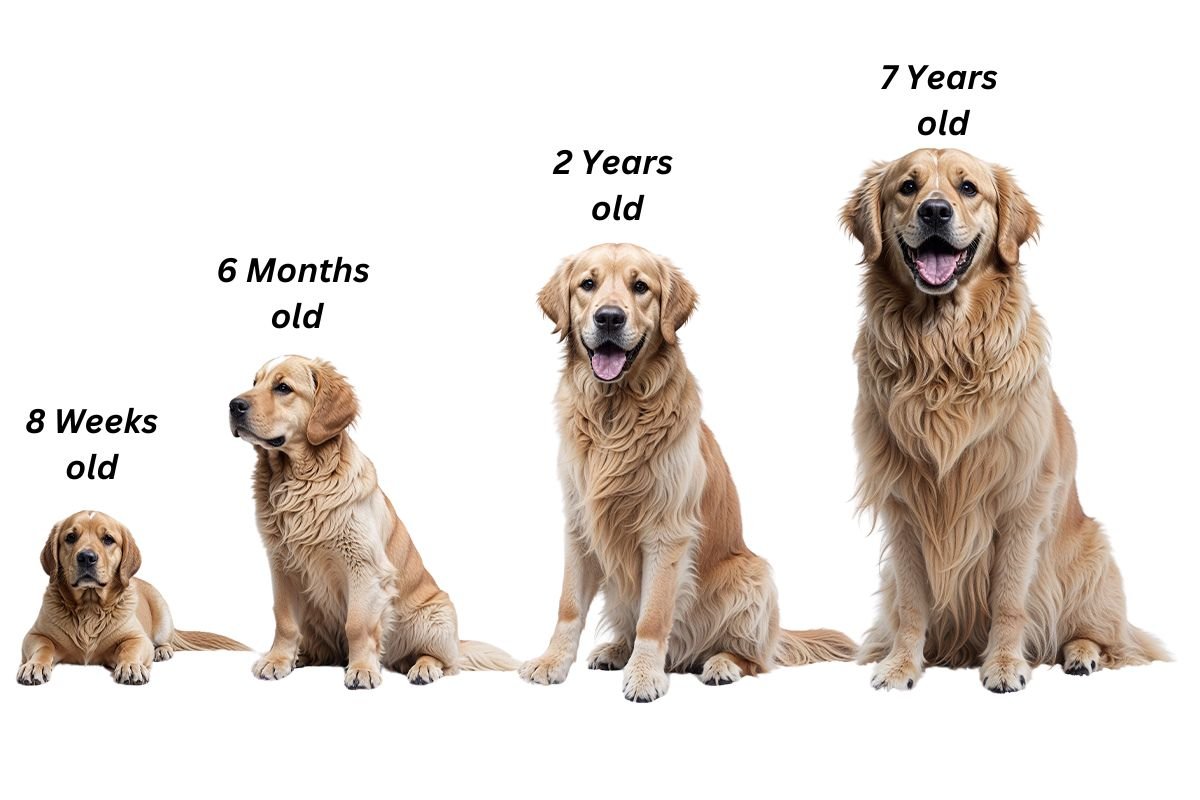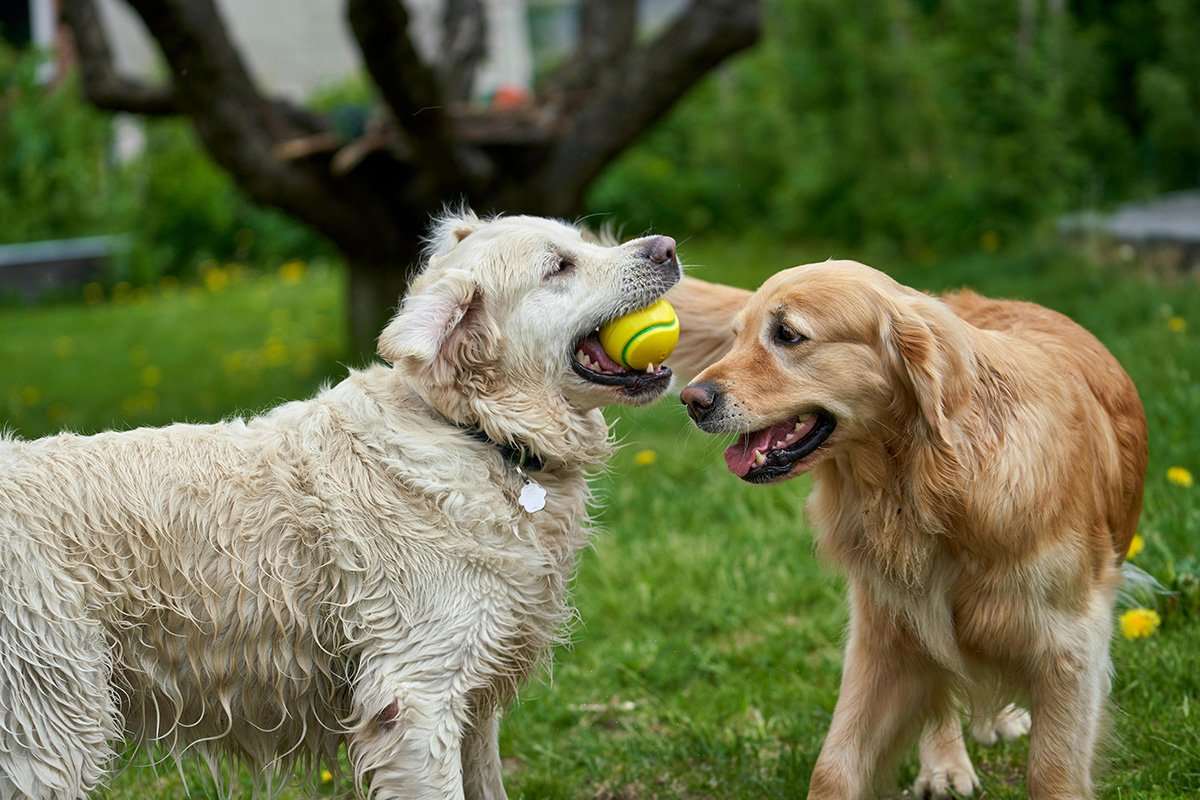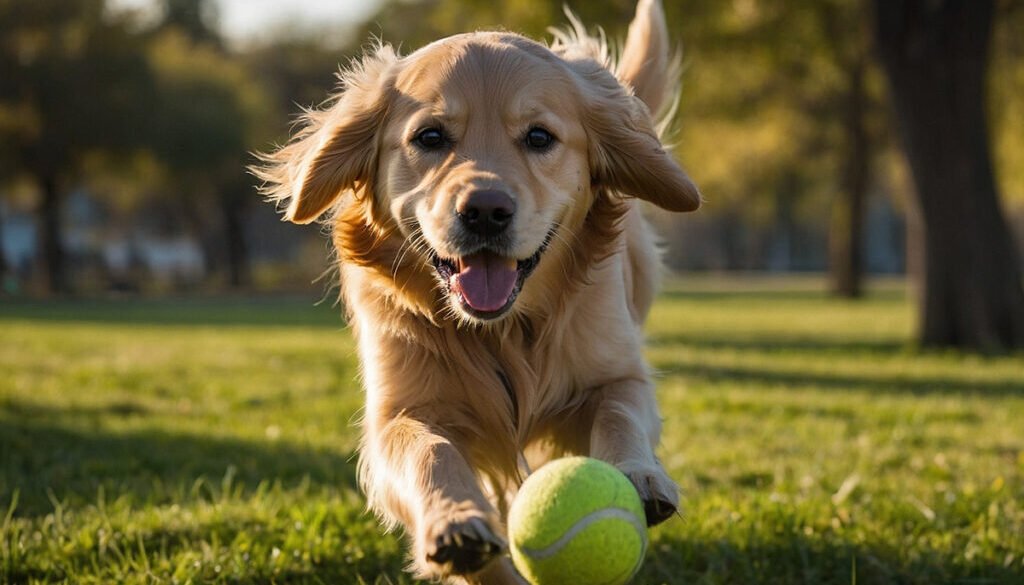What is the Best Age to Breed a Male Golden Retriever: Everything You Need to Know
Ever wondered what age is best to breed your male Golden Retriever? This is a common question for owners who love their Golden Retrievers and want to ensure a healthy line of puppies. Whether you’re thinking about breeding for the first time or considering another round of pups, understanding the best age for breeding is essential. Breeding at the right time can improve the health of the puppies, minimize genetic issues, and support the overall well-being of your male Golden Retriever.
Let’s explore the ideal age, the science behind it, and how you can ensure your Golden is ready for fatherhood. By the end, you’ll know just what to do to make the most responsible and healthy decision for your dog.
Understanding the Best Age for Breeding a Male Golden Retriever

Unlike female dogs, whose breeding age can be restricted by cycles, male dogs have a little more flexibility. But just because they can breed doesn’t always mean they should. Most breeders and veterinarians agree that male Golden Retrievers should ideally be around 18 months to 2 years old before they are bred. Here’s why that window matters.
Factors That Influence Breeding Age
- Physical Maturity
Physical development is a key factor for any Golden Retriever when it comes to breeding. While male Goldens reach sexual maturity as early as 6 to 12 months, this doesn’t mean they are ready for the responsibilities of breeding. Here’s a breakdown:
- Sexual Maturity: While male Goldens can produce sperm as early as 6 months, it’s not until they reach around 12-18 months that their sperm quality improves, which is important for healthy litters.
- Full Size and Strength: Golden Retrievers are considered physically mature around 18 months to 2 years old. Waiting until your dog reaches his full size and strength ensures he can handle the rigors of breeding without any strain.

- Genetic Health Testing
One of the most significant responsibilities of breeding is ensuring your dog’s genetic health. Golden Retrievers are susceptible to genetic conditions like hip dysplasia, elbow dysplasia, and progressive retinal atrophy (PRA). Testing your dog’s genetic profile before breeding is crucial to prevent passing on these conditions.
- Hip and Elbow Dysplasia: This common joint condition can be detected through X-ray screenings as your dog matures. Breeding without testing can contribute to passing this painful condition to future puppies.
- Heart Health: Goldens are also prone to subaortic stenosis (SAS), a congenital heart defect. Genetic testing is essential to rule out this condition.
- Eye Health: Progressive Retinal Atrophy (PRA) is an inherited eye condition that leads to blindness. Certified veterinary ophthalmologists can provide screenings to check for this issue.

- Behavioral Readiness
Behavioral maturity, which usually develops between 18 months to 2 years, is an often-overlooked aspect of breeding readiness. This is when your dog’s personality stabilizes, showing confidence, playfulness, and patience—traits that are valuable for a good father dog.
- Temperament Testing: Golden Retrievers are known for their friendly and loyal personalities. By 18 months, you can assess if your dog’s temperament aligns with the ideal Golden traits: friendly, obedient, and mild-mannered.
- Social Skills: Mature dogs generally get along better with other dogs, which can be beneficial for the breeding process and interaction with the female.

The Ideal Breeding Age for Male Golden Retrievers
For most male Golden Retrievers, the best age to start breeding is between 18 months and 4 years old. Within this window, they’re typically:
- Physically mature and capable of handling the act of breeding
- Genetically tested for hereditary health issues
- Behaviorally mature, patient, and reliable
After 4 years of age, while breeding is still possible, health checks become even more essential. Fertility can begin to decline after age 7, which may affect litter size and puppy health.
Health and Ethical Considerations in Breeding
Ethical breeding goes beyond just age—it’s about promoting health and wellbeing in both the parent dogs and the puppies. Here’s what responsible Golden Retriever breeders consider:
- Limiting Breeding Frequency: A male Golden should not be overused for breeding. Limiting his breeding helps prevent genetic issues and ensures healthier litters.
- Monitoring Sperm Quality: A dog’s sperm count and quality can affect the size and health of the litter. Regular check-ups are a good idea if you intend to breed a Golden past age 5.
- Providing Proper Nutrition: A well-nourished, healthy dog will produce better offspring. Male Goldens intended for breeding should have a balanced diet rich in protein and essential fatty acids to support energy and reproductive health.
Preparing Your Male Golden Retriever for Breeding
Before breeding, make sure your Golden Retriever is in top condition, with the following checklist in mind:
- Health Screenings: Complete all genetic and health screenings, including hip, elbow, heart, and eye exams.
- Vaccinations: Ensure that your dog is up-to-date on all vaccinations.
- Healthy Weight and Diet: Feed your dog a balanced diet and maintain a healthy weight. Obesity can impact reproductive health.
- Exercise: Regular exercise keeps your dog fit and ready for breeding while also supporting his mental and emotional well-being.
Finding a Mate

If you don’t already have a mate in mind, consider the following when searching for a female companion:
- Genetic Compatibility: Ensure she also has the necessary health clearances.
- Personality Match: Golden Retrievers have a range of temperaments, so it’s best to match your dog with a female whose personality complements his own.
Potential Risks and Concerns
Breeding a Golden Retriever isn’t without risks. Some potential challenges include:
- Injury: The physical process of breeding can be demanding, so it’s crucial to ensure both dogs are comfortable.
- Increased Risk of Genetic Issues: Breeding without proper health screenings can lead to health issues in puppies.
- Emotional Stress: Not all dogs are naturally suited to breeding, and some may become stressed or anxious during the process.
Responsible breeders keep an eye out for signs of stress and health issues and are prepared to step in if the breeding process isn’t going as planned.
Conclusion
In summary, the best age to breed a male Golden Retriever is typically between 18 months and 4 years. By this time, your Golden is likely to be physically, genetically, and behaviorally mature, which gives puppies the best possible start in life. Prioritize your dog’s health, complete genetic testing, and always seek the advice of a veterinarian before breeding. With these considerations in mind, breeding can be a rewarding experience that helps preserve the beloved traits of the Golden Retriever breed.
FAQs
- Can I breed my Golden Retriever before he’s 18 months old?
While possible, breeding before 18 months is not recommended. Dogs may be sexually mature earlier, but their physical and behavioral maturity is incomplete. - Is it okay to breed a male Golden Retriever older than 7 years?
Yes, but with caution. Older dogs have a higher risk of producing smaller litters and may pass on more genetic issues due to age. - What if my Golden Retriever has a genetic condition?
It’s best not to breed a dog with a genetic condition. Doing so can pass on health issues to future generations. - How can I tell if my dog is behaviorally ready to breed?
Look for signs of confidence, social ease with other dogs, and a calm disposition. If your Golden Retriever is still overly hyper or nervous, he may not be ready. - What should I do if my dog experiences stress during breeding?
If your Golden Retriever shows signs of stress, such as excessive panting, whining, or reluctance to interact with the female, it’s essential to take a step back. Stress can negatively impact the breeding process and your dog’s overall well-being. Here are some tips:
- Ensure a calm environment: Avoid noisy or crowded spaces during breeding.
- Introduce the dogs gradually: Allow them to interact and get comfortable with each other before proceeding.
- Take breaks: If your dog seems overwhelmed, give him time to relax and regroup.
- Consult a veterinarian or professional breeder: They can offer advice or intervene if necessary.
- Can I freeze and store sperm for later use?
Yes, freezing and storing your male Golden Retriever’s sperm is an option, especially if you plan to breed in the future or want to preserve his genetics. This process, known as canine semen cryopreservation, involves the collection, evaluation, freezing, and storage of sperm at specialized facilities. Here’s what you need to know:
- Where to do it: Look for a veterinary reproductive specialist or a canine semen bank that offers this service.
- Why it’s useful: This method is beneficial for older dogs, those with health concerns, or owners who want to expand breeding opportunities with distant mates.
- Costs: Freezing and storage come with fees, so budget accordingly if you’re considering this option.
- Usage: Stored sperm can be used for artificial insemination when you’re ready to breed.
For more on Golden Retrievers and responsible breeding, visit the American Kennel Club (AKC) or consult a certified veterinarian.



